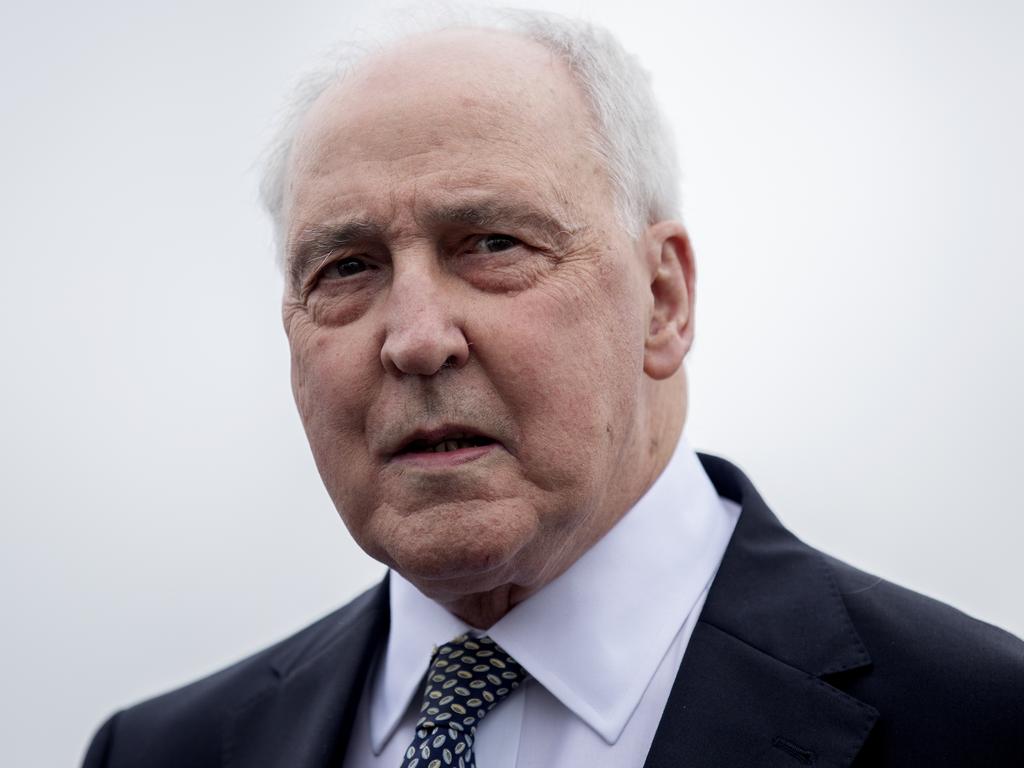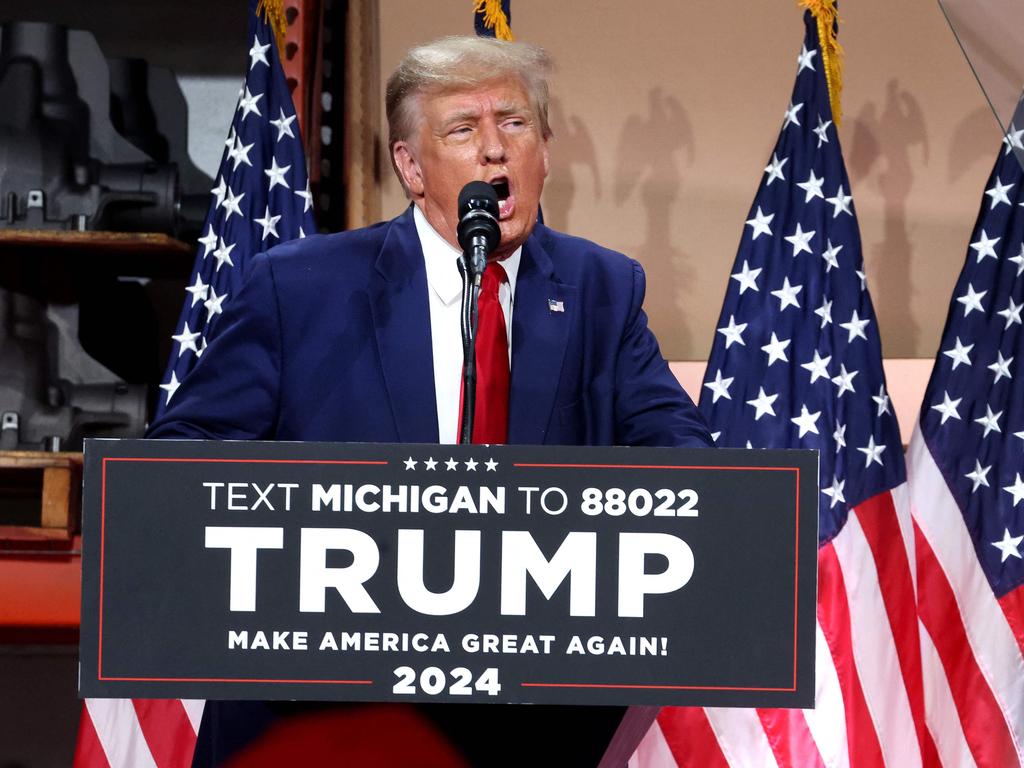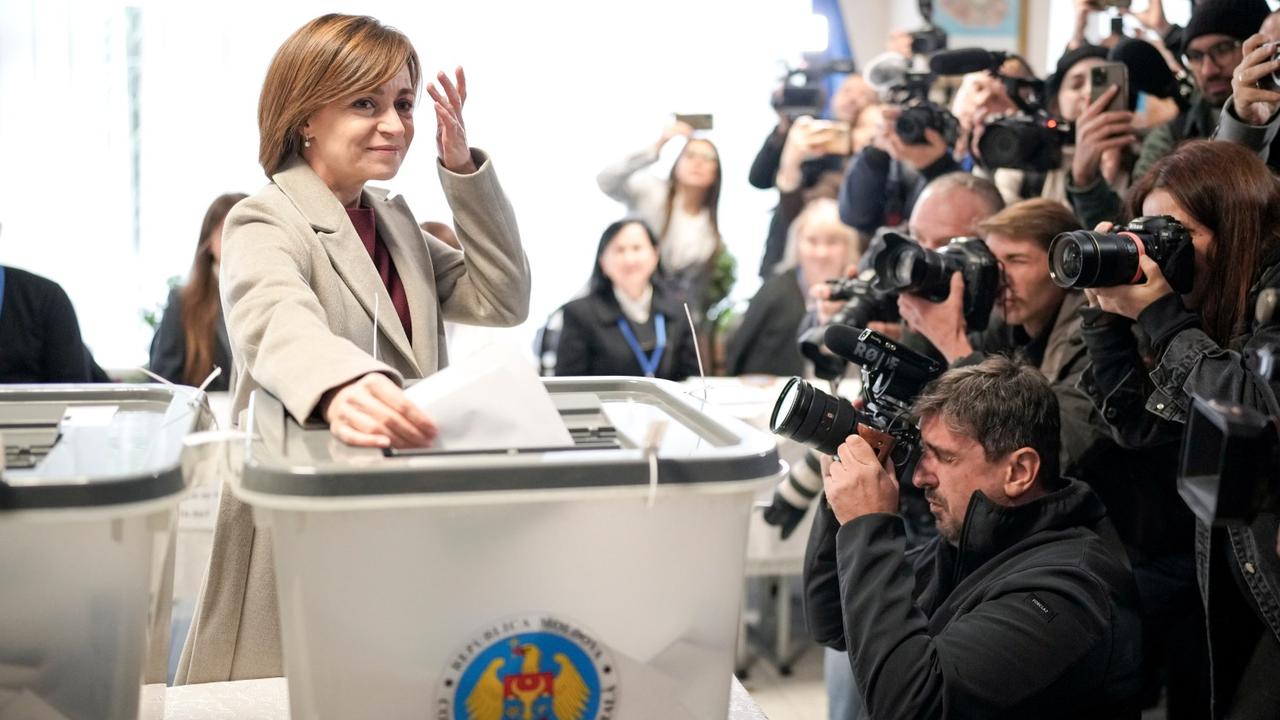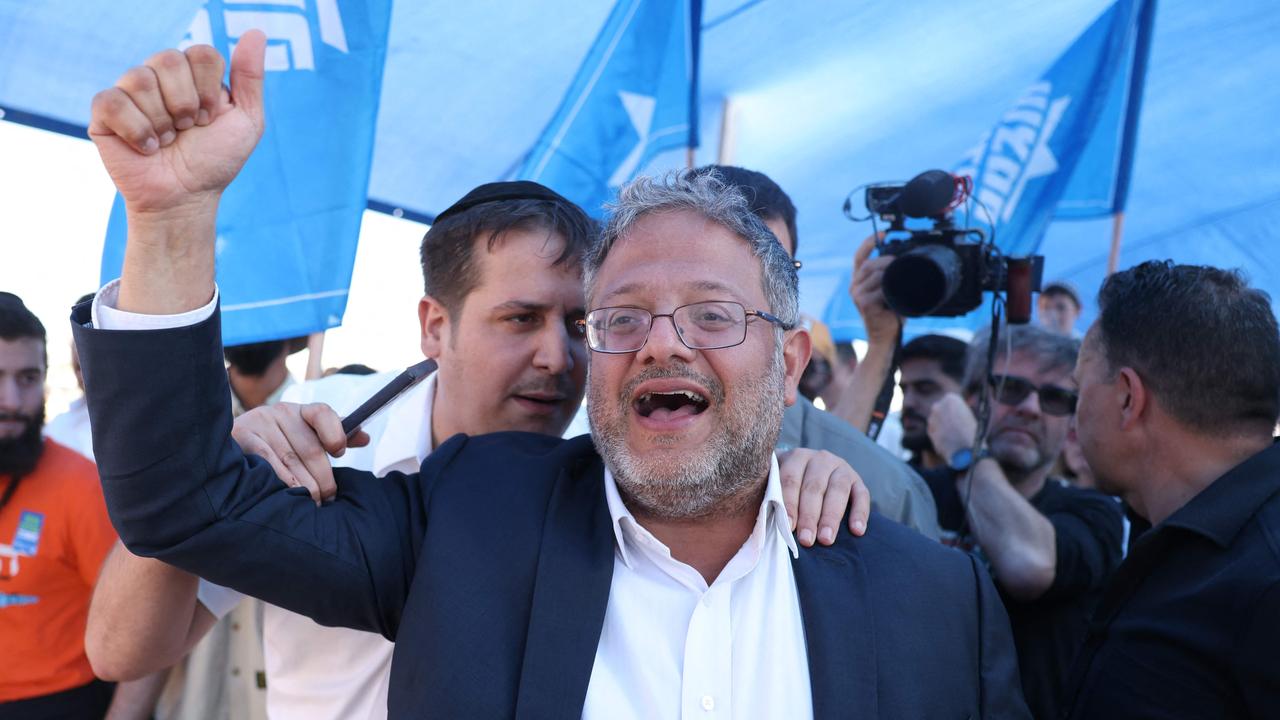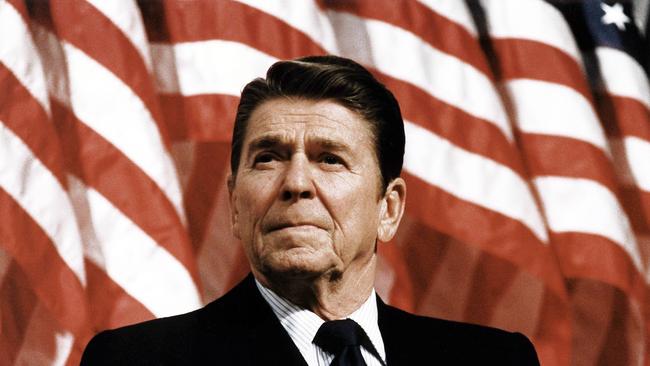
The second Republican “presidential” debate in California on Wednesday was, like the first a month ago, overshadowed by the spectre of an absent former president.
The title demands quotation marks because with Donald Trump, who currently leads the field by 40 percentage points in opinion polls, once again choosing to stay away, the line-up at these events is about as likely to produce the next president as it is to beget the next Taylor Swift.
While miracles are possible, it requires an imaginative use of branding to apply the label “presidential” to the aspirations of Doug Burgum, the governor of North Dakota, Tim Scott, the South Carolina senator, or even Ron DeSantis, the Florida governor and once but fading pretender to the Republican leadership.
On this occasion, however, the ghost dominating this meagre rhetorical banquet was not Trump but Ronald Reagan.
It has become part of the ritual of the Republican primary process to compel aspirants to make the pilgrimage to the Reagan presidential library and museum in Simi Valley, the debate stage literally under the nose of the 40th president’s Air Force One jet. This event opened with the usual gauzy tribute to the former president and over two hours the candidates dutifully invoked his spirit. Reagan’s name was spoken 25 times; Trump got 18 mentions.
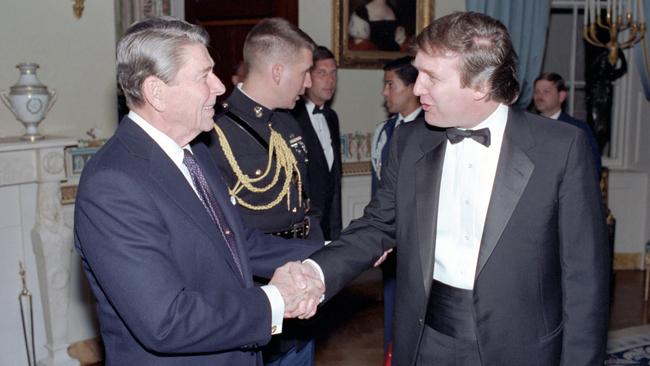
In an age of uncommon political turbulence, Reagan remains the still point in the Republicans’ turning world, the secular saint whose intercession they must seek. No Republican politician has been electorally more successful in the past century. His record is frequently misrepresented and his ideological purity often overstated, but it’s hard to dispute that the rededication of the conservative movement he led to the ideals of free markets and small government at home, and the confident assertion of American values and power abroad, shaped US – and much of the West’s – recent history.
The ascendancy of the so-called neoliberal model Reagan espoused was so great that it reshaped the politics of the right and the left, pulling the Democratic Party back towards the middle ground. With Margaret Thatcher in Britain, he helped reset the parameters of debate in much of the world.
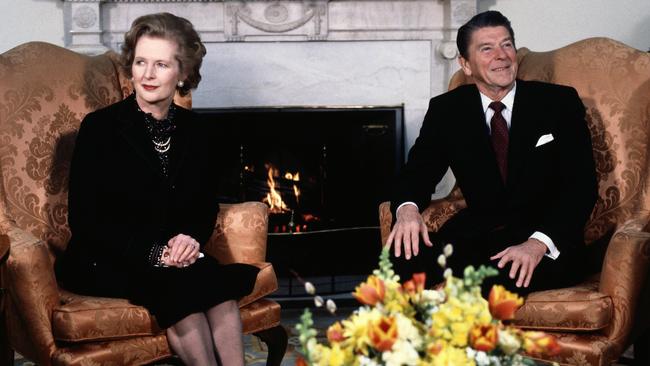
But this year, more than in any election cycle since he left the White House almost 40 years ago, the Republican Party seems to have escaped its thrall to the Reagan supremacy. The candidates and the party’s establishment still make their homage but for many of the leading figures – and a large number of rank-and-file Republicans – it feels more like nostalgia than commitment to a live political creed.
True, the Reagan name is still so revered that even Trump has not dared to take it in vain, but in practice many of the defining elements of the Reagan canon have been jettisoned.
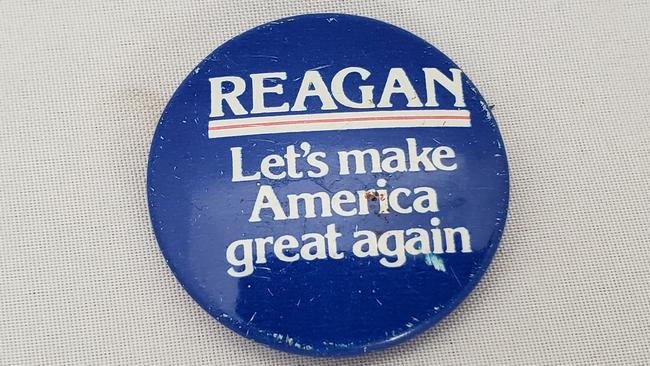
Trump’s apostasy – his America First hostility to global entanglements and alliances (and an apparent taste for foreign autocrats); his support for large government spending programs such as Medicare and Social Security, the public pension and old-age health insurance systems; his immigration restrictionism, free trade scepticism and embrace of tariffs; perhaps above all a sensibility that government can and should be used actively to defend and promote the interests of ordinary Americans – is comprehensive.
The number of times a leading conservative has commented in the past few years that Reagan would be turning in his grave at some new Trumpian declaration or posture used to be a good indicator of how alien the Trump phenomenon was to conservative idealism. Now it seems more like a reliable sign of how alien Reagan is to the modern conservative temper.
Tension between populists and more ideologically pure conservatives has long been evident in the broad coalition that makes up the American right. As Matthew Continetti, a scholar at the American Enterprise Institute, notes in his excellent book The Right; The Hundred-Year War for American Conservatism, populist fortunes have waxed and waned as the saliency of economic, social and cultural factors has fluctuated.
For now, though, it looks as though the tension has been resolved – and the Reagan legatees have lost. Not, to be sure, in the party’s senior ranks in Washington or among many of the more thoughtful protagonists in conservative media and think tanks, but surely among the grassroots and its likely presidential contender.
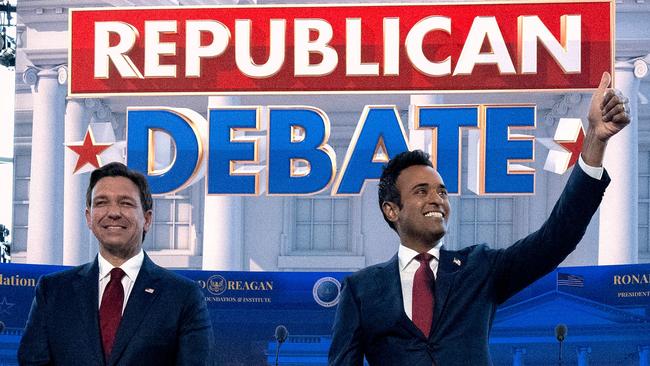
Take the current line-up of candidates. If you add Trump’s support in the polls to that of Vivek Ramaswamy, the young entrepreneur turned woke scourge and reliable Trump proxy, you have almost two thirds of Republican primary voters. You can probably add to that a solid chunk of the 15 per cent or so who support DeSantis, who has cast himself as a pragmatic populist.
Only Nikki Haley, the former South Carolina governor, Mike Pence, the former vice-president, Chris Christie, the former New Jersey governor, and Scott continue to clothe themselves in the Reagan mantle. Between them their support is running at about 15 per cent.
It is possible this all just reflects the extraordinary cult-like hold Trump has on voters, and not some real ideological shift. But deeper polling suggests there is more substance to it. A report published this week by the avowedly populist-conservative group American Compass assessed the views of Republican voters as expressed by support for ideas judged either “Old Right” (Reaganite, essentially) and “New Right” (in economic and social terms, populist). More than 40 per cent hold views identified as New Right; fewer than 30 per cent are Old Right.
Perhaps the Gipper has turned in his grave for the last time.


